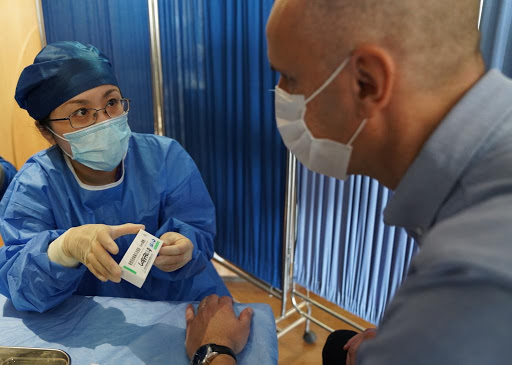Most expats love living in Malaysia, but a growing string of recent actions by the government have many convinced the appreciation is not reciprocal
The role of expats (as opposed to migrant workers, which is an economic distinction rather than a racial one) and the value placed on them varies from country to country.
Early on, neighbouring Singapore saw great value in having foreigners help build the country, and today they are arguably the most successful small nation in the world. Even when compared to other countries of all sizes, they frequently appear high up in global rankings for many different measures, from education to ease of doing business. Singapore has several hundred thousand permanent residents and sees them as an asset to the nation. On the other hand, Malaysia is far more reluctant to approve PR status, and it is usually a long and painful process even for those few who eventually get approved.
Understandably, expats do not get the same rights as citizens. They do pay the same taxes as Malaysians, and generally benefit the country through their investments or work efforts, but they have little influence on how the country treats them. They cannot vote and are forbidden to get involved in any political activities. In most cases, their children must attend fee-paying international schools and cannot register for subsidised education at local schools. If they are not contributing or flout regulations, it is easy to revoke their visas and tell them to leave.
A SHIFT IN ATTITUDE
During the years of the Economic Transformation Programme, launched back in 2010, it was made clear the government valued expats as a key part of the future growth of the country. An increase in the size of Malaysia’s expat population was included in the final documents, actually positioned as something the country should strive for. Another sign of their value was the introduction of the 10-year Resident Pass aimed at attracting talented expats to extend their stay here.
What a difference a decade makes! The new government seems to have a very different view of expats’ worth. Many resident expats have written to us asking why they are being treated so badly and why their contribution is not appreciated. Some have speculated that because they do not vote, they are of little interest, but the truth is that no one knows why they have been given such a rough time. For those of us at TEG Media, a company that has been actively promoting Malaysia for the last 25 years, it is distressing to see people talking about leaving or shifting their business operations to another country. And yet this is exactly what’s happening.
THE COVID EFFECT
The problems started in earnest when the current government shut the borders in March last year and immigration made a clear distinction between Malaysians who were welcomed back and all foreigners who lived here with valid visas, who were denied entry. Since the majority of these expats had their homes and families in Malaysia, it was a shock to be shut out of the country. For many, it also became a very expensive and difficult time as they had to find a place to live for a prolonged, indefinite period.
Eventually, conditions were eased for the working expats holding more senior positions, mostly due to the efforts of the various business chambers. They pointed out that this was not a good way to treat people who were helping to build the economy and had been approved to live and work here. However, even most working expats were never given the free entry enjoyed by Malaysians and had to make a new application justifying why they needed to return to the country.
Those with a Malaysia My Second Home visa, who had heeded the call to make Malaysia their home and enjoy the friendly people and excellent medical care, were treated even worse. Many were not allowed to enter for several months. Eventually, some were allowed back in, but not if they had left the country after March 18th last year. They had departed for many reasons, and it is hardly surprising that people living abroad often have compelling reasons to travel back to their home country. They were told they were free to leave any time and did not realise they could not return.
In September of last year, the government identified 23 countries with over 150,000 cases of Covid-19 – considered high at that time – and once again told expats they could not enter if they were travelling from them, or, it seemed, even if they held those passports. Once again, the business chambers pushed for working expats to enter and the rules were slowly eased, but not for those holding an MM2H visa. Even now, more than six months later, they are still being denied entry. Their pleas to be allowed in to fix problems with their homes, put their children back in school, or even have follow medical checks were not seen as fitting reasons. Some have even had Covid-19 vaccinations and tell us they were rejected.
One of the problems is that these MM2Hers do not have any powerful lobbyists. We have written extensively about their treatment but to no avail, as we no longer have relevant connections in the government, and for the most part, our emails are ignored. We have seen other articles by groups and individuals asking why the MM2H programme is suspended, given how it can help the battered economy, but their efforts have also been unsuccessful.
EXPATS AND THE VACCINE
Now, once again, expats are being pushed to one side, this time for Covid-19 vaccinations. It makes sense that frontliners should get vaccinated first, and no one argues with that decision. It is also only fair that the more high-risk residents, like the elderly or those with pre-existing conditions, get vaccinated next, to avoid them being hospitalised or, worse still, dying. Many expats were pleasantly surprised when the Malaysian government made the correct decision to include all non-citizens in its immunisation programme, with no cost to anyone receiving the vaccine.
What shocked one older expat, however, is that when he asked when he could expect to be vaccinated, the MySejahtera app help desk advised him that non-citizens were in the last group to be vaccinated, seemingly regardless of age or any health issues.
Though we are not aware of any official statement regarding this matter having been issued by the government, the fact is that MySejahtera is itself fully a government portal, so our view is that responses made through this portal by definition must come from the government.
What is perhaps most surprising is that the government has advised they still intend to launch a revised MM2H programme, and that they are keen to encourage foreign investment. Their actions towards expats over the last year certainly seem inconsistent with that objective.
Years ago, I was given unsolicited Permanent Residency in appreciation of our efforts to promote Malaysia and the various support we gave to the government, but now there is little interest in our views. I was very happy to promote Malaysia as a great place to live and work. I still love living here, but that does not mean I think resident expats, who all contribute in one way or another, have had a fair deal. We hope that at some point, there will be someone in a position of influence who will change this rather negative attitude towards the many expats who have benefited the country through their investments or work efforts. Unfortunately, as the months go by, it seems less and less likely.
"ExpatGo welcomes and encourages comments, input, and divergent opinions. However, we kindly request that you use suitable language in your comments, and refrain from any sort of personal attack, hate speech, or disparaging rhetoric. Comments not in line with this are subject to removal from the site. "





















